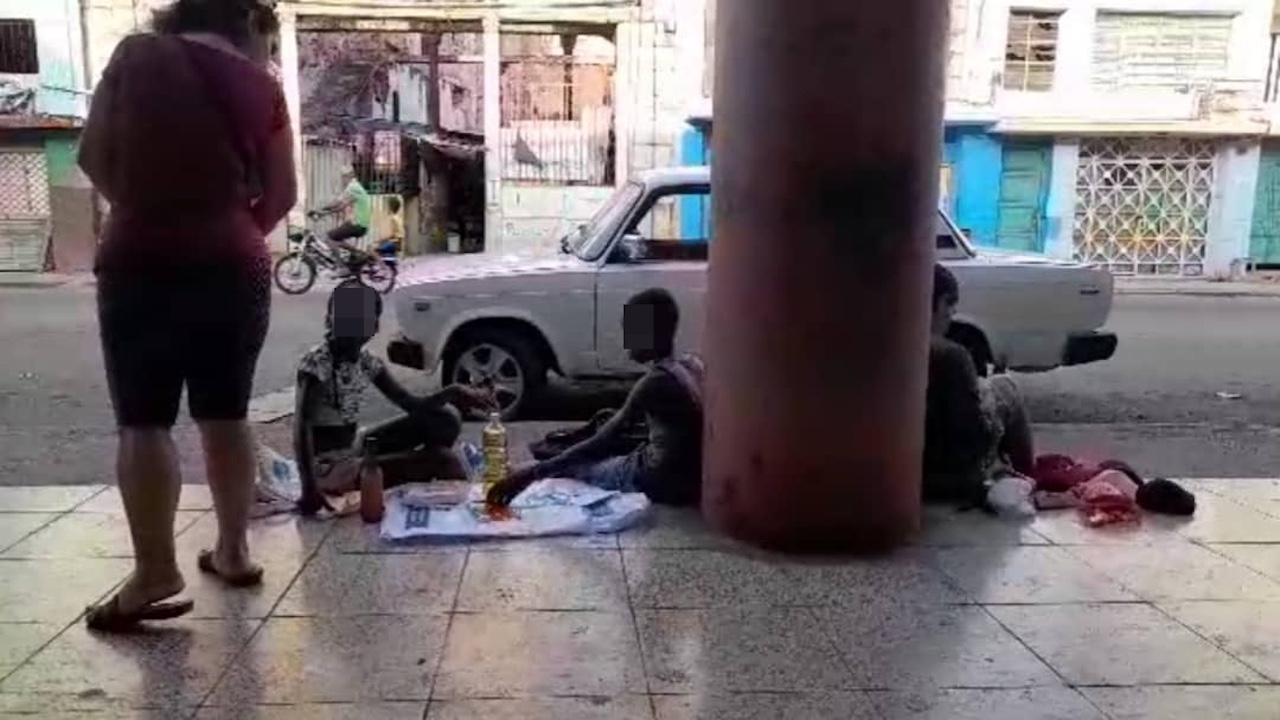"I have to work on the street, to help my mom," said El Tingui, a 12-year-old boy who, along with his sister, plays hooky to sell food and household supplies along the doorways lining the Calle Ejido in Havana, which helps put food on the table at home.
The number of children in Cuba doing different kinds of jobs to try to make up for the lack of food, medicine and clothing at home has increased in recent years, and the regime's press has had to acknowledge it.
"Scrapping to get by" on the street is better, in the minds of those children, than enduring shortages and inflation without being able to do anything about it.
Children and the elderly are among the sectors most affected by the systemic crisis that Cuba is enduring; the former, because families cannot cover all their members' needs as they grow up; and the latter because their paltry retirements force them to go hungry if they do not have relatives to help them.
In February of this year Miguel Díaz-Canel's regime officially requested assistance from the United Nations World Food Program (WFP) to maintain the subsidized distribution of milk to children under seven years of age.
A 2022 survey by the CubaData project revealed that 82.5% of Cubans surveyed were concerned about the lack of food in the country. That insufficiency even led to someone eating less or skipping meals at 70.8% of the interviewees' homes. The study also found that in 71.1% of households someone ran out of food, at some point, due to a lack of money or because there was nowhere to buy it.
The Cuban Human Rights Observatory (OCDH) stated in its 6th Report on the State of Social Rights in Cuba that extreme poverty in the country increased drastically in one year. According to it 88% of Cubans live on less than 1.9 dollars a day, and 48% of them have stopped eating due to a lack of food.
"For me, the street is my classroom," said Yorqui, another child. "At home we're going hungry and at school I can't get food."
Yorqui sells bread twice a day, in the morning and in the afternoon. In one day he can make 600 pesos, less than two dollars at the current exchange rate on the informal currency market.
Among the most common activities for children are the sale of agricultural products, bread, cookies, ice cream, jams and household supplies. But some even work in construction, according to their own accounts.
"I've been working in construction since I was 13, casting concrete slabs," said Yuniel, now 15. He said that he can work between six and ten hours a day.
The International Labor Organization (ILO) defines child labor as "any work that is physically, mentally, socially or morally harmful for children; activities that interfere with their schooling, forcing them to leave the classrooms from an early age, or combining long hours of heavy work."
According to experts, reducing poverty is one of the most effective measures to prevent child labor, which has negative effects on children. Children can develop chronic illness and disease and malnutrition from working long hours, handling heavy loads, being exposed to hazardous substances and suffering abuse by adults.
UNICEF notes that 1 in 10 children between the ages of 5 and 17 works in the world, and calls on governments to effectively address the issue of child labor and protect their rights.
In Cuba, Article 66 of the Constitution prohibits children and adolescents from working. Chapter 1 of the Labor Code, in its section on the Foundations and Principles of Labor Law, Article 2, subsection d), declares the "the prohibition of child labor and special protection for young people between the ages of 15 and 18 who enter the work force in order to guarantee their integral development." Chapter 5 of that special protection states that "exceptionally, they are authorized to work if they have completed their vocational training, or in a trade, or other reasons that justify it."
Meanwhile, Article 138 of the Family Code regulates the content of parental responsibility and parents' duties and obligations in relation to their minor children. And Decree-Law 44, on the exercise for self-employment, prohibits the hiring of children under 15 years of age.
Beyond laws and the official rhetoric, however, the poverty caused by the Government's economic blunders spurs children to scrap to survive, and more and more are facing the dilemma of choosing between school or work.
